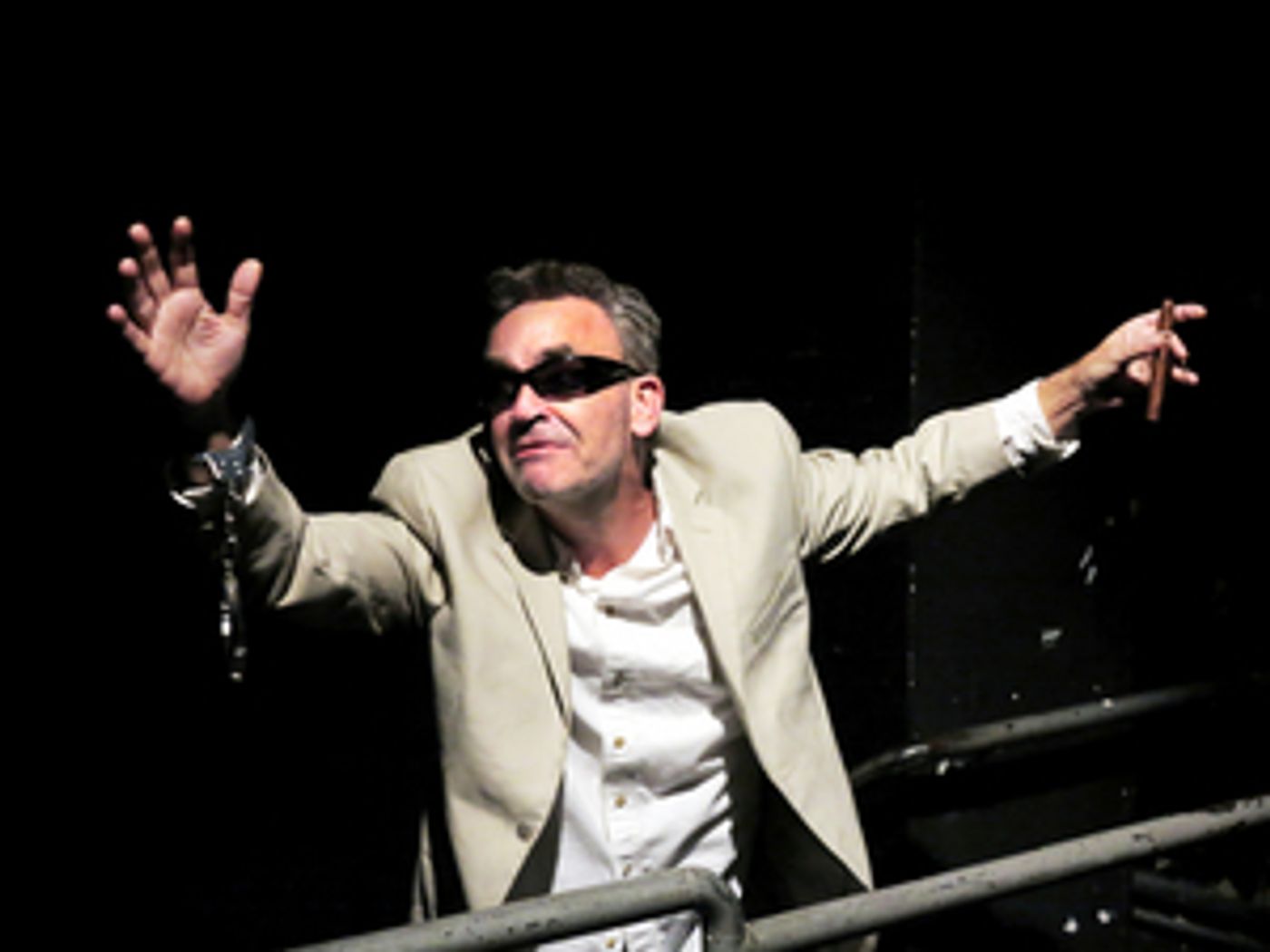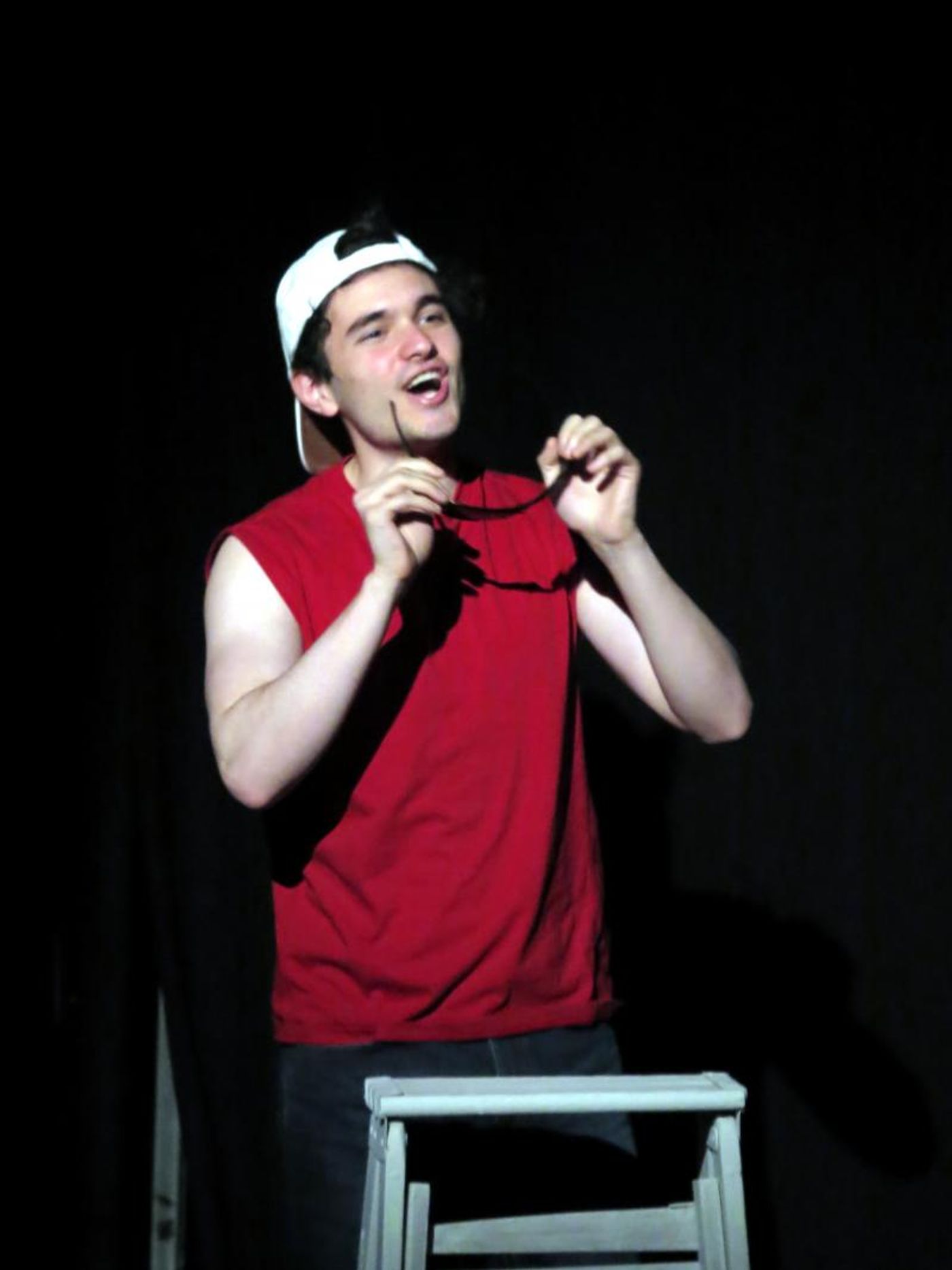Review: THE WHITES Inverts Race at Theater For The New City

As creatively ambitious as it is confounding, The Whites illuminates a race-inverted space where Black is white, the Whites are "black" and...vice versa? Visually, narratively and dramatically, this play is far from subtle. Familial archetypes and societal stereotypes collide, challenging us to recognize the Other while coming to grips with our self-awareness of implicit bias, privilege, and social injustice.
No stranger to provocative theater (www.gunplays.org), Playwright/Director William Electric Black's premise--a story and characters that are culturally Black played by a cast that is racially white--provides a slippery way in but no steady way out. The central question of the play is Sesame Street simple: "Who are the people in your neighborhood? Coincidentally, Black (www.williamelectricblack.com), a faculty member at NYU's Tisch School (Dept. of Dramatic Writing/Open Arts, and NYU's Summer High School Program), won Emmys writing for Sesame Street, and his knack for broad-stroke characterization is evident.
Harris White (John Michael Hersey) is a bus driver striving to keep the White family together. His wife, Rasheeda (Janet Donofrio), is a community activist and devoted mother of twins Raymond (Nathan Keiller) and Taylor (Emma Bass). Raymond sees basketball as his ticket out of the neighborhood; Taylor is an anti-gun crusader. Harris' brother, Bunk (Kamal Sehrawy) fights alcoholism and his criminal past on his path to making amends. His son Gordon, aka G-Good (Joseph Sean Murphy), is an at-risk youth with a gang affiliation.
In addition to this core family centering the play are peripheral neighborhood personalities spicing things up: Miss Martha (Eve Packer) dishes out advice in her newspaper column; Ujamma Man (David Rieth) philosophizes from street corners; and filmmaker Sugar Washington (Richard Weber) never stops touting his next project.
While the Whites contend with gun violence, school segregation and the aftermath of prison, the other characters share their own words of woe and work with varying degrees of success at personification and authenticity. Names such as Rasheeda, Ujamma Man and Sugar Washington may suggest African-American personas; however, neutralized costume pieces such as capri pants, sandals and a white hair scrunchy steer clear of any ethno-centric cues. The play's actors do not attempt to mimic Black characters per se, but rather convey the "Black experience" via the play's script as written, which includes some street cred-caliber banter from Gordon:
"I'm friendly. I'm not a damn threat. I can come over to their house any fuckin' time I want for a kale salad, avocado toast, and coconut water on ice. I'm their best fuckin' friend. The White guy they love to love."

The minimalist set includes a basketball goal, some platforms, chain link fence, and chairs. Actors entering/exiting from audience-level staircases added some variety to the action, as did the spot-specific lighting. Marc Schmied playing the acoustic bass adds effective musical soul.
Full disclosure: As a white theater reviewer with an interest in racial and social justice, I was attracted to this play because of the theatre, the playwright's portfolio, and this work's audacious direction: invert race onstage for dramatic effect and emotional impact. Was it up to the task?
Almost immediately I became aware of how much my own identity and reliance on visual cues affect the way I consume a show with a culturally specific angle, particularly that of a racially charged drama. When one of the most obvious onstage signifiers of a culture's identity (Black actors dramatizing a Black experience) is whitewashed, conflicting feelings emerged.
Each audience member's experience is subjective, and as The Whites aims to illuminate the feelings that accompany the reality of racial discrimination for the benefit of all the races, we may wonder: does The Whites' theatrical incongruity create enough friction to dislodge anyone's attitudinal complacency? I see how Black's work as an artist pushes beyond anticipated boundaries to help redefine new ones.
Photos: Jonathan Slaff
Reader Reviews
Videos

